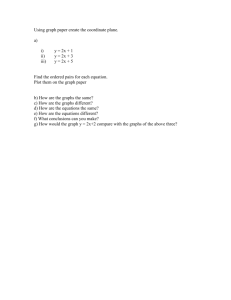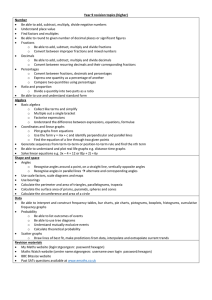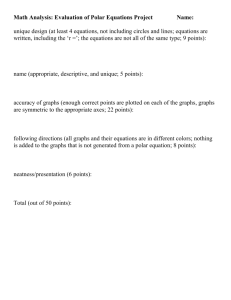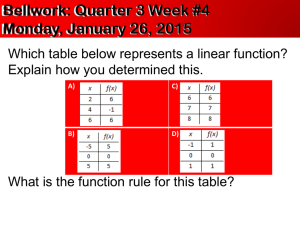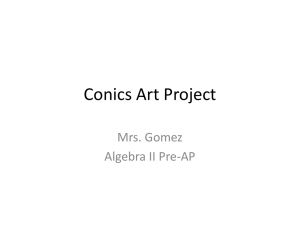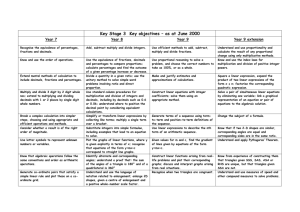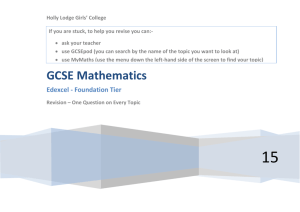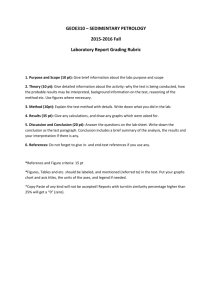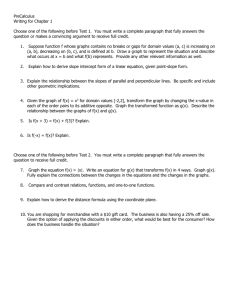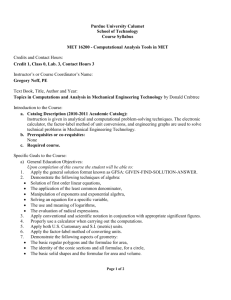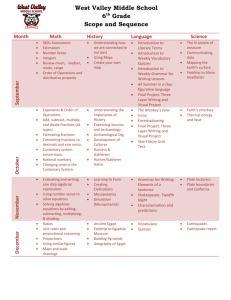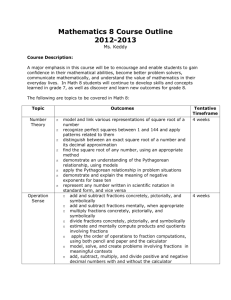Algebra
advertisement
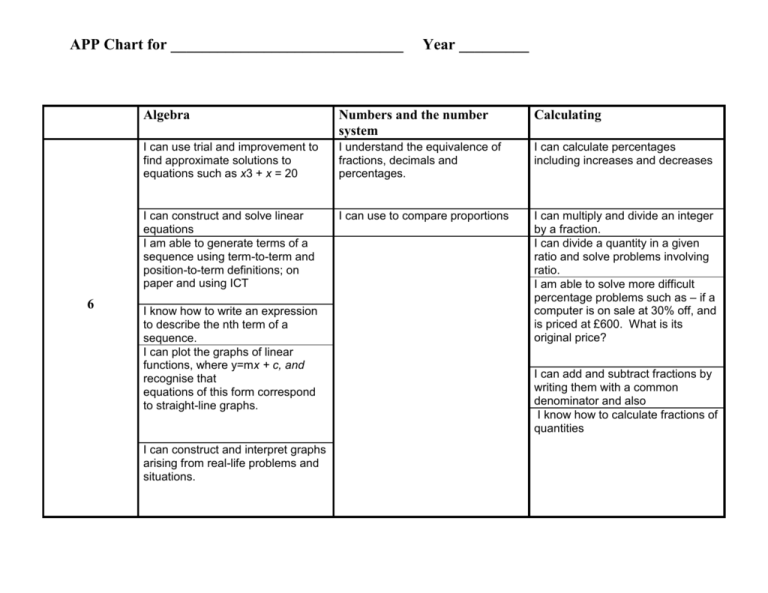
APP Chart for ______________________________ 6 Year _________ Algebra Numbers and the number system Calculating I can use trial and improvement to find approximate solutions to equations such as x3 + x = 20 I understand the equivalence of fractions, decimals and percentages. I can calculate percentages including increases and decreases I can construct and solve linear equations I am able to generate terms of a sequence using term-to-term and position-to-term definitions; on paper and using ICT I can use to compare proportions I can multiply and divide an integer by a fraction. I can divide a quantity in a given ratio and solve problems involving ratio. I am able to solve more difficult percentage problems such as – if a computer is on sale at 30% off, and is priced at £600. What is its original price? I know how to write an expression to describe the nth term of a sequence. I can plot the graphs of linear functions, where y=mx + c, and recognise that equations of this form correspond to straight-line graphs. I can construct and interpret graphs arising from real-life problems and situations. I can add and subtract fractions by writing them with a common denominator and also I know how to calculate fractions of quantities APP Chart for ______________________________ Using and applying Mathematics Shape, Space and measure Handling Data I know how to solve problems by breaking them into smaller tasks, using a range of methods and resources, including ICT. I can interpret, discuss and use information presented in a variety of mathematical forms I can classify quadrilaterals by their geometric properties I know how to solve geometrical problems using properties of angles, parallel and intersecting lines, triangles and other polygons I can design a survey or experiment and complete it. I am able to construct tables for large discrete and continuous sets of raw data, choosing suitable class intervals. I can present a concise and reasoned argument, using symbols, diagrams, graphs and explanatory texts 6 Year _________ I use logical argument to establish the truth of a statement I can identify alternate and corresponding angles. I understand a proof that the sum of the angles of a triangle is 180° and of a quadrilateral is 360° I can visualise and use 2-D representations of 3-D objects I can enlarge 2-D shapes, given a centre of enlargement and a scale factor I know that translations, rotations and reflections preserve lengths and angles I can use a straight edge and compasses to create constructions I can deduce and use formulae for the area of a triangle and parallelogram, and the volume of a cuboid. I am able to calculate volumes and surface areas of cuboids I know and can use the formulae for the circumference and area of a circle I can design and use two-way tables I can construct and modify, on paper and using ICT: . pie charts for categorical data . bar charts and frequency diagrams for discrete data and continuous data. . simple time graphs for time series . scatter graphs and identify which are most useful in the context of the problem I can find and record all possible mutually exclusive outcomes for single events and two successive events in a systematic way I am able to use the fact that, the sum of probabilities in mutually exclusive events is 1, to solve problems
